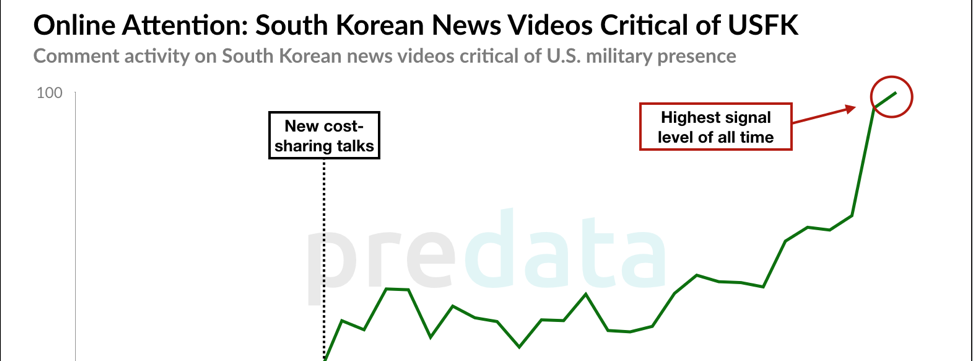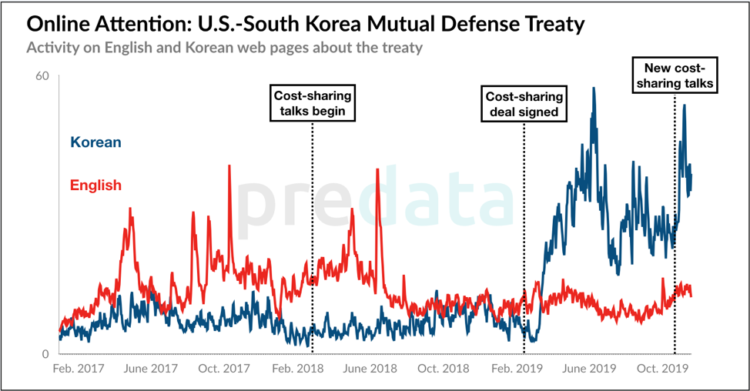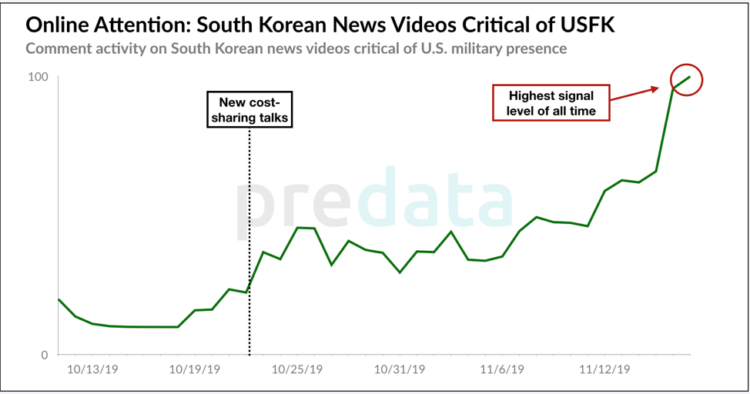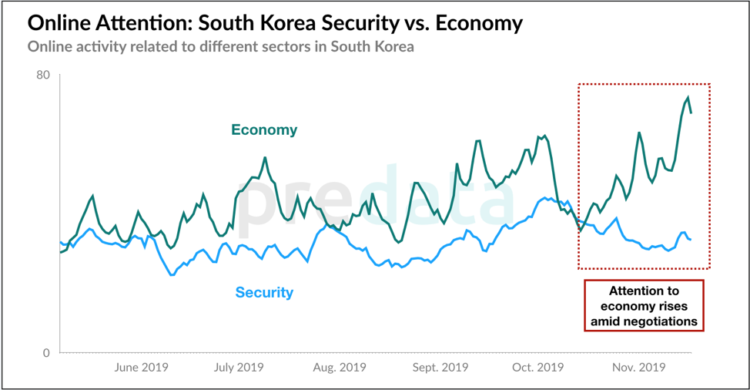
U.S.-South Korea Cost-Sharing Negotiations Impacting Korean Public Support for U.S. Security Umbrella
The United States walked out of the latest round of cost-sharing negotiations with its ally South Korea last week in a rare sign of alliance dissonance. While all negotiations over how much the two allies should pay annually for the non-personnel costs of stationing 28,500 U.S. forces on the Korean peninsula are difficult, this year’s is particularly so because the Trump Administration has called for a more-than-five-fold increase in payments from South Korea ($896 million in 2019 to $5 billion in 2020).
The Special Measures Agreement (SMA) negotiations may be particularly harmful to the alliance. Rumors surfaced last week that the Pentagon may pull out a brigade from Korea if the cost-sharing negotiations fail, which would be an unprecedented act in the 66-year history of the alliance. South Korean protests over the exorbitant U.S. demand, which saw demonstrations breaking through the perimeter of the American ambassador’s residence this month, make it political suicide for the Moon Jae-in government to agree to a 500% increase in payments to the U.S.
Predata signals suggest a significant perception gap emerging between the U.S. and South Korea. First, South Koreans are more focused on the financial burden of the U.S. military presence than on the positive security benefits it provides. Second, U.S. demands for $5 billion in cost-sharing are generating the highest ever levels of social media and video commentary critical of U.S. forces in Korea.
Heightened Attention to SMA Among South Koreans
The basis for the U.S. military presence on the Korean peninsula is a mutual defense treaty signed by both counties in 1953. And throughout the cost-sharing negotiations, Korean internet users have been scrutinizing that treaty. Traffic on Korean-language web pages about the treaty picked up in early March after the failure of the 2018 negotiations led to the signing of a 2019 temporary one-year extension cost-sharing agreement, and has remained elevated since. By contrast, English-speaking internet users showed interest in the treaty in 2017 throughout mid-2018, when tensions and diplomatic engagement with North Korea dominated international headlines. So though American and international observers view the U.S. military presence in a security context, Korean audiences seem to view it in an economic one, turning their attention to the foundational treaty as the financial burden has increased.

Notable Upticks in Engagement with Anti-U.S. Content
Moreover, Koreans are increasingly taking out their frustration with the burden-sharing negotiations online. Viewer engagement with South Korean news reports covering the negotiations has risen to its highest level ever. Notably, the videos driving the spike are highly critical of the U.S. military presence and were posted several months ago, which means that Korean internet users are actively seeking and engaging with anti-U.S. content.

Frustration Over Faltering Economy Provides Context
In addition, other signals show the economic aspect of the negotiations may be more salient to Koreans than the United States realizes. Since Washington and Seoul opened the latest round of talks in late October, online attention to subjects related to the South Korean economy has climbed steadily to hit its highest level in more than a year. Online attention to South Korean security issues, meanwhile, has remained relatively muted. Washington’s $5-billion demand comes at a time when South Koreans are on edge about the economy: The export-dependent country has been hard hit by the U.S.-China trade war, and its third-quarter growth slowed more than expected.

